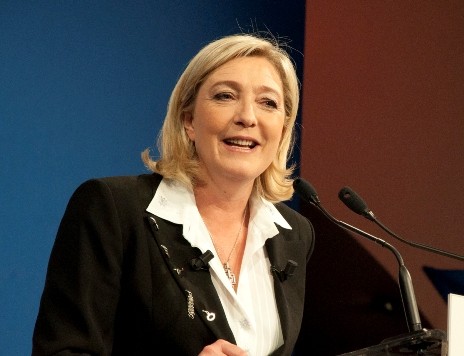In a further blow to his credibility, French President Francois Hollande’s ruling Socialist Party has lost control of France’s Senate, allowing the National Front to pick up seats for the first time. The victory for the far right party marks their third significant electoral gain this year, and confirms their ascent into mainstream French politics.
As the results were announced, the National Front was jubilant. Their leader Marine Le Pen, who is credited for turning the party around and making it a credible force in French politics, hailed the result as “a great victory, an absolutely historic victory”, which would be a “breath of fresh air in a rather sleepy chamber”.
“With every day that passes, our ideas are making progress,” she told BFMTV. In March, the party took control of twelve municipalities, and just two months later stormed into the lead in the European Elections, knocking the centre right UMP (former President Nicolas Sarkozy’s party) into second place.
One of the two new Nationalist Senators is the Mayor of Fréjus, one of the municipalities gained back in March. At 26 years old the Mayor, David Rachline, is France’s youngest ever Senator elected. His new colleague is Stéphane Ravier from Marseilles, another National Front stronghold in the south of France.
Speaking to the media after his election, Ravier said: “There’s just one more door to open, the Elysée [the Presidential Palace]. In 2017 we’ll have Marine Le Pen to do it.” A poll conducted earlier this month showed that Le Pen could be in a position to beat Hollande in the second round of voting for the next Presidential elections.
Sunday’s Senate vote saw half of the 348 seat chamber up for re-election under a revised format first introduced in 2004. Senators hold six year terms, and are Senators are elected by around 88,000 ‘grands électeurs’ made up of various councillors, mayors, and members of the national assembly rather than a universal suffrage.
The election also saw the demise of the Socialist party’s coalition, which included Green and Communist members. Three years ago, the Socialists took the Senate for the first time ever since the founding of the Fifth Republic in 1958. A the time Hollande was celebratory, crowing “Nicolas Sarkozy will go down in history as the president who lost the right its majority in the Senate.” Yet the tables are now turning as Sarkozy, spurred on by his party retaking control in coalition with the centrist UDI (together they took 188 seats, 13 more than were needed for a majority), is planning to run for leadership of the UMP.
A new Senate leader will be chosen from the UMP contingent to succeed socialist Jean-Pierre Bel.
The loss is yet another blow for the failing Hollande administration, which has been beset by soaring unemployment, a huge and growing deficit, unpopularity over heavy taxes and, most recently, a scandal in which Hollande’s ex-partner accused him of being a ‘caviar socialist’ who mocks the poor.
Hollande’s popularity is now at an unprecedented low of just 13%.

COMMENTS
Please let us know if you're having issues with commenting.